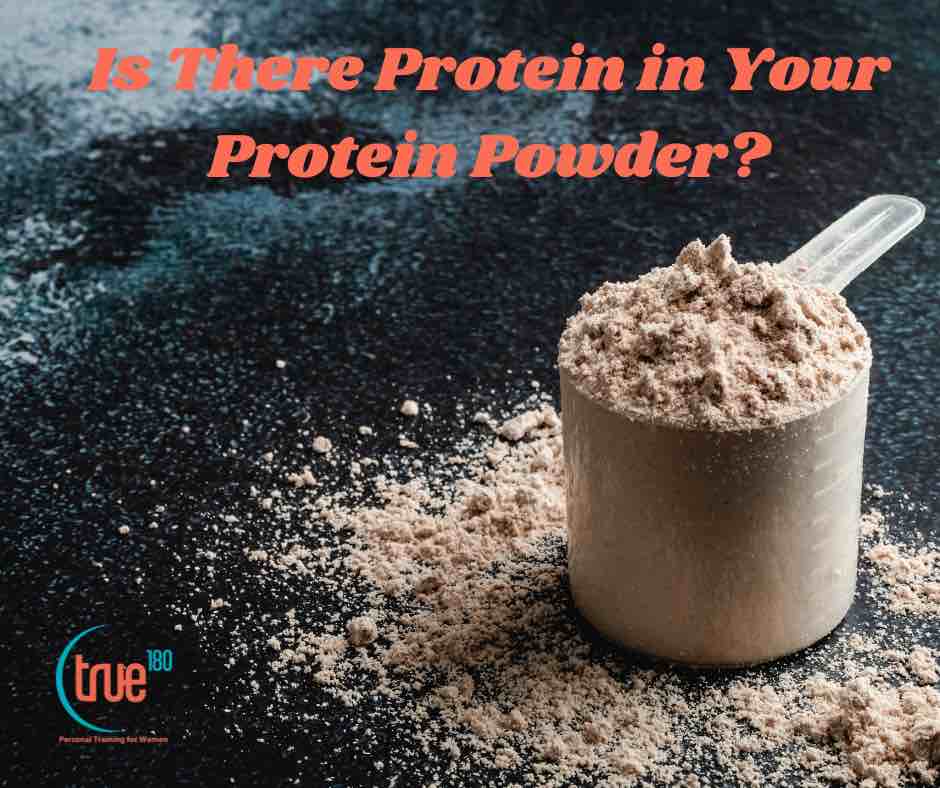We often get asked about protein supplements, especially protein powder, and their benefits so lets dive in!
On the one hand, most women will need to use a protein supplement to get enough protein without going over their calories. On the other hand, the answer to the title question, Is There Protein in Your Protein Powder?, is not always “yes.”
50% of supplements are mislabeled, and 30% are contaminated. In protein supplement production there’s a trick called “protein spiking” that can fool the lab tests into seeing more protein in the sample than it actually contains.
Muscle toning/building requires 2 things:
#1. Stimulus – the workouts.
#2. Nutrition support – protein.
We (your coaches) are in charge of #1, so that variable is controlled. The only variable outside our control is #2 – protein.
For your protein there are 2 layers:
(A) how much do you think you are getting?
(B) is that real?
The good news is that your InBody scan will answer (B) conclusively. If you’ve been training consistently and tracking your protein, and muscle mass is declining, then your protein supplement is likely mislabeled and it’s time to change brands.
Reminder: your basic protein goal is at least 80% of your lean body mass in grams. LBM, or lean body mass is at the top of your InBody sheet. Example: if you have 100 pounds of LBM then you want to get 80 grams (or more) of protein per day. (Here are some low calorie protein ideas.)
How Do I Know What’s What?
Good supplements have 3 basic things in common:
- Independently 3rd party tested to make sure that what’s on the label is exactly what’s in the bottle, good manufacturing practices are in place, etc.
- NSF certified for sport takes #1 to a higher level and is a double guarantee on what is in the bottle, and that the supplement is not contaminated intentionally or unintentionally.
- Research documentation. Is there independent research on humans that this stuff (in this form and quantity) works? And making sure that the specific forms of the ingredients in the bottle are the ones the research was done on.
What do I need?
There are 2 basic types of protein supplements:
Meal replacements. As the name implies, it is intended to replace a meal. So it will also have some carbs, tiny bit of fat, and, hopefully, a good bit of fiber.
· The upside is that this saves a lot of time.
· Downside is that you can’t adjust the amount of protein up unless you want to add another powder to the powder.
· This is our favorite meal replacement, Lean MR.
Just Protein. This is a close to pure protein as you can get. I like this option because it lets me get my protein for very few calories and leaves me space in my calories for something I want, which is currently pretzels and hummus or pirate booty at lunch. These are our favorite options depending on your needs and wants:
· You can get dairy based.
· You can get plant based.
· You can get it without artificial sweeteners.
One caveat on protein shake preparation: try not to add too many calories. I used to add frozen fruit, powdered peanut butter, almond milk, etc to my protein shakes, but then I realized that these mix ins used up calories that I would rather spend elsewhere. Having a shake with just cold water gives me a lot more options for the rest of my diet.
Bottom Line
If what you are doing right now is working, then keep it up! However, if it is time for a change please check out one of the options above.

